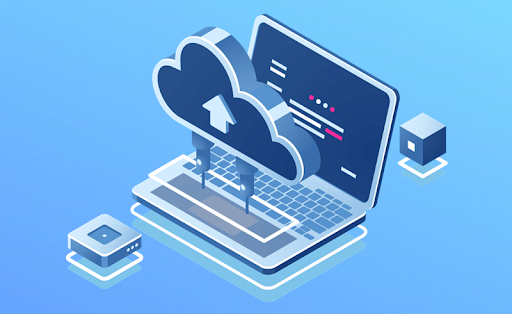Cloud computing is one of the more revolutionary technologies for mobile app development. It is a powerful and important piece of app development infrastructure that enables innovation in creating cutting-edge mobile applications through the numerous advantages it offers.
It allows developers to access a plethora of resources including storage, databases, servers, and software over the internet. This provides a number of advantages for the development process, benefits including cost reduction, scalability, and enhanced collaboration etc.
The numerous benefits of cloud computing has made it one of the most favored technologies for mobile app developers. Let’s have a detailed look at the role of cloud computing in mobile app development.
Scalability in Mobile Apps
Mobile app development has changed drastically over the past decade, as modern apps need to evolve over time to adjust to the user-base size and demand. But scaling in mobile app development usually requires acquiring new hardware which can be costly, time-consuming and complicated.
Cloud computing allows developers to circumvent all these issues by providing near-infinite computing resources. Almost all cloud computing resources are modular, allowing you to add or remove required virtual services as needed.
The nature of cloud computing allows the developers to react to sudden changes in the mobile app’s traffic, avoiding any setbacks. This makes cloud computing an extremely powerful tool for flexible and economical scalability.
Cost-Effectiveness
Mobile app development is getting costlier by each passing day. The cost of acquiring, developing, and maintaining app development infrastructure can get exponentially higher with scaling.
Switching to cloud computing for mobile app development gives developer a huge advantage by cutting costs significantly. With cloud computing you only pay for the resources you have to use, thus saving a lot on needless resources.
Cloud computing not only saves you money in terms of upfront costs in acquiring and installing app development infrastructure, but also in terms of upkeep, security expense, and upgradation as cloud platforms are responsible for all that.
It will not be an exaggeration to say that cloud computing is the most efficient and cost-effective way to go for mobile app development.
Multi-OS Platform Development:
Developers often have to tackle with the issue of developing an app for multiple platforms, and this can significantly increase the cost and development time for an app as it has to be developed exclusively for different operating systems.
This is not required with the power of cloud computing in mobile app development. Developers and users both benefit from an app that is cloud-based, as their is no platform barrier in accessing the app.
Cloud computing allows the developers to store an app directly in the cloud from where it can be accessed by users regardless of their platform or operating system, which makes it an incredibly practical solution to multi-platform development.
Cloud computing enables collaboration
App development is a highly collaborative process that requires multiple teams working together on different parts of an app. Without a reliable mode of collaboration, the whole development process falls apart and it becomes impossible to deliver a top-notch product.
Cloud computing is a lifesaver in this regard. With all resources and data available remotely, it allows different teams across different locations to work together seamlessly. Collaborative tasks like reviewing code, sharing notes, evaluating resources, and going through data points become extremely accessible.
Cloud computing is also ideal for outsourcing and collaborating with freelancers, allowing businesses to make use of a vast global talent pool. Working on app development that uses Ruby on Rails? now you can hire ROR developers without worrying about any collaboration issues.
Cloud Technologies for Mobile Apps
Mobile cloud computing is an extension of cloud computing that specifically focuses on the development, maintenance, and operation of mobile apps over the cloud. This approach offers several advantages, including platform-agnostic development, which ensures that apps can run on various devices and operating systems without the need for extensive reconfiguration.
The rapid development and deployment capabilities provided by cloud services are invaluable for mobile app developers. With a wide array of development tools, libraries, and services readily available, developers can quickly prototype, launch, and iterate on their applications, responding to user feedback and market trends with agility.
Conclusion
Cloud computing plays a pivotal role in the modern mobile app development landscape. It provides the scalability, cost-effectiveness, and flexibility necessary to create successful mobile applications that meet the evolving needs of users and businesses. As cloud technologies continue to advance, we can expect them to further shape the future of mobile app development, driving innovation and efficiency in this dynamic field.




